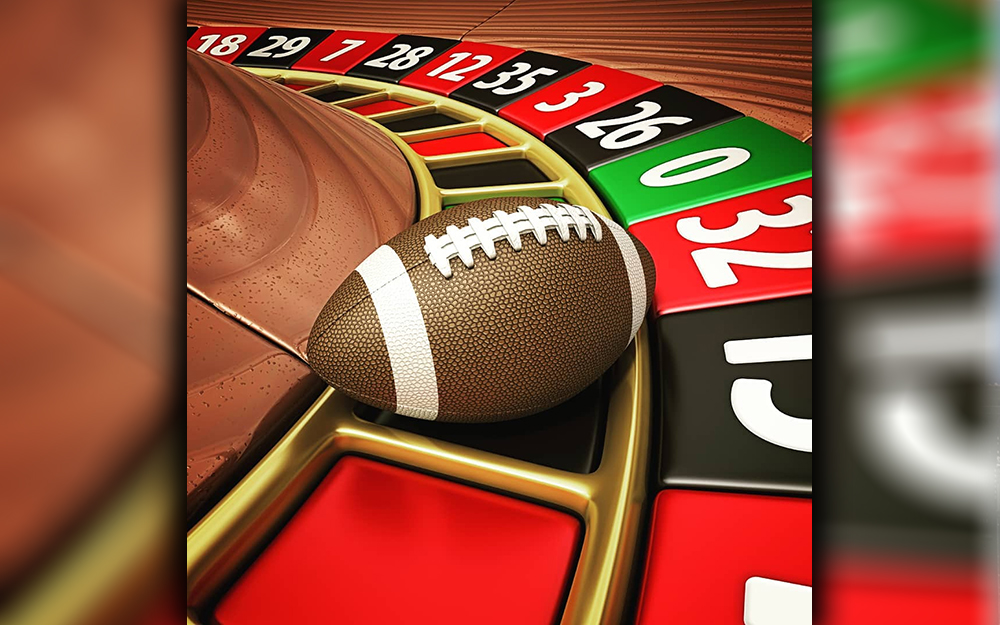
By Haddon Libby
Are you ready for some football?
As the National Football League starts its 88th campaign this week, ratings are expected to continue a decline begun in 2016. While player protests during the singing of the Star-Spangled Banner caused some of the viewership loss, bad teams like Da’Bears, De’Jets and the Giants in the nation’s largest television markets have hurt as well. Additionally, many people are cord-cutting meaning that a larger percentage of the potential viewing universe do not have access to live NFL games.
When you combine these woes with greater public concern over the long-term health and wellness of football players, why are team owners virtually giddy regarding the future of the NFL?
Gambling.
Three months ago, the Supreme Court ruled it unconstitutional for the federal government to prevent state governments from allowing sports gambling as had been the case since 1992. By deeming the Bradley Act unconstitutional, the Supreme Court ushered in a brave, new world for sports fans, athletes and team owners in the United States.
Before a state can allow sports gambling, it must pass laws and put in place the governmental agencies needed to regulate the industry. Until June, Nevada was the only state with full sports betting. At present, New Jersey, West Virginia, Mississippi and Delaware have joined Nevada with Pennsylvania and Rhode Island expected to ‘go live’ in October. According to Ryan Rodenberg of ESPN, another nineteen states are considering potential forays into sports gambling with Utah being the only state to rule out the idea.
The Nevada Gaming Control states that $4.8 billion was wagered at sports books in 2017 with earnings of $250 million for sport book owners. Other states see how much Nevada makes and want their cut of the action.
As reported by ESPN, none of this is lost on the NFL as gamblers watch 35 games per season whereas non-gamblers watch 16 games. Meanwhile, gamblers watch more of each game than their non-gambling counterparts. While ratings may be declining, viewer engagement is poised to spike as sports better becomes as easy as a click on your phone or remote.
Expect special betting opportunities to be embedded in the live game that you are watching whether you watch on a television, tablet or Smartphone. As an example, if a team is trying a game-winning field goal at the end of regulation, the viewer will have the ability to place a bet on that. This is in part why Verizon recently signed a five-year. $2.5 billion deal with the NFL to be the exclusive streamer of all live NFL games that do not occur on Sunday afternoons. That is $500 million a year for Monday night, Thursday night and the occasional Saturday game. Verizon’s rival, AT&T, owns Sunday afternoons via DirecTV for $1.5 billion per year.
NFL team owners can expect their already bulging billionaire wallets to grow rapidly as gambling will lead to new licensing rights and countless income producing partnerships.
Getting around to the game itself, who do oddsmakers think will win Super Bowl 53?
Oddsmaker Bovada puts 7:1 odds on the New England Patriots. Super Bowl 52 winner, the Philadelphia Eagles, are at 9:1 followed by the Los Angeles Rams (10:1), Pittsburgh Steelers (11:1), Minnesota Vikings (11:1) and the Green Bay Packers at (14:1).
The New York Jets are the NFL equivalent to a dumpster fire with the lowest chance of winning the Super Bowl at 175:1. The Miami Dolphins look pretty bad at 125:1 as do the Arizona Cardinals, Da’Bears and Buffalo Bills at 100:1 odds.
New England Patriots fan, Haddon Libby who wrote this article is the Founder and Managing Partner of Winslow Drake Investment Management. For more information on their Super services and coaching, please visit www.WinslowDrake.com.










































